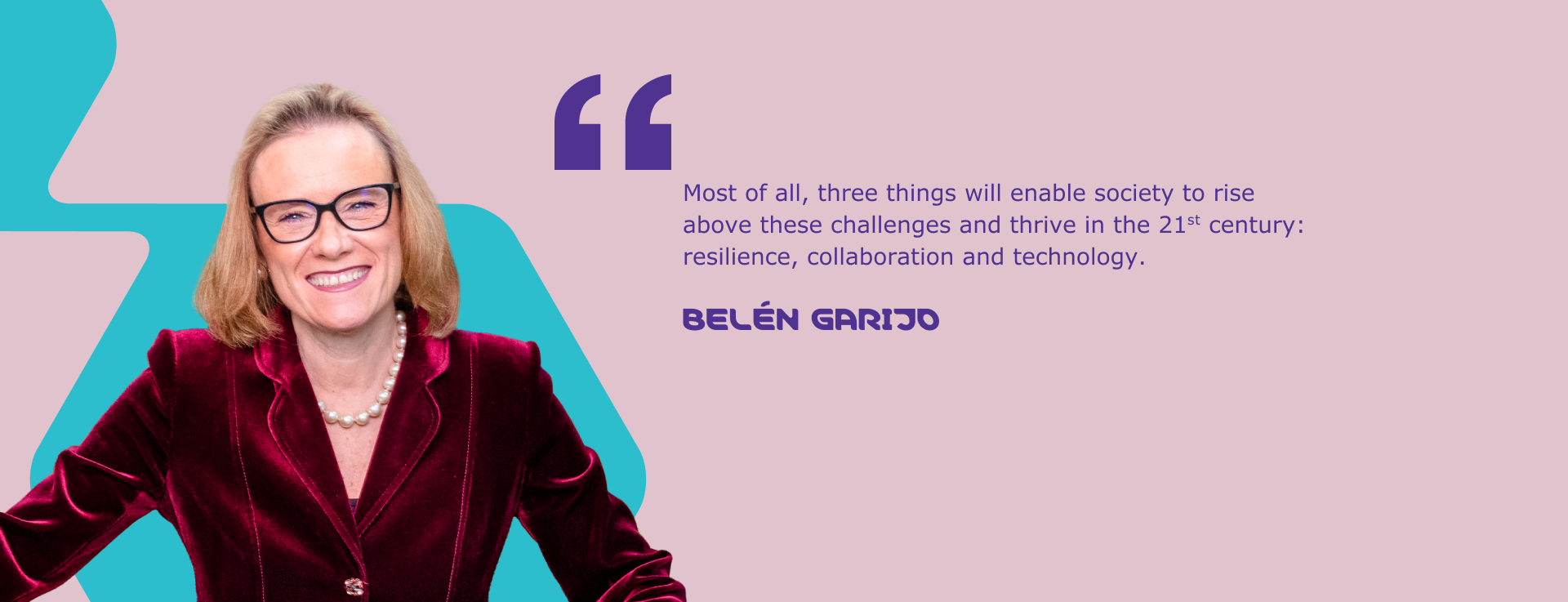
A cascading series of global crises and conflicts starting with the Covid-19 pandemic has made our world much more complex and uncertain.
The threats these global challenges pose to health, security, and sustainability were highlighted in two U.N. reports issued in 2022. The first stated that the 17 Sustainable Development Goals (SDG) under the 2030 Agenda “are in jeopardy.” The second declared that there is no longer a realistic pathway to restricting climate change to 1.5 °C. Moving forward, the only viable path to avoid the worst effects of the climate crisis is through the “rapid transformation of societies.”
In short, we have only a few decades to fundamentally change the ways in which we consume food, energy and other resources while addressing global inequity in health, education and living standards. It will require nothing less than humanity raising the bar higher than ever before.
As the leader of Merck KGaA, Darmstadt, Germany, I am confident we can do it. Most of all, three things will enable society to rise above these challenges and thrive in the 21st century: resilience, collaboration and technology.
Resilience underpins us
Resilience allows us to navigate through tough times and seize the moment. It is what has helped our company for centuries to cope with and emerge stronger from major international economic and geopolitical crises. Our resilience is helping to ensure that we remain firmly on track to achieve our most important sustainability goals. By 2030, we aim to have integrated sustainability into all value chains and contributed to human progress for more than one billion people through sustainable science and technology. And by 2040, we expect to achieve climate-neutral operations.
We made significant strides towards the achievement of these overarching goals during 2022. For example, the independent Science Based Targets initiative (SBTi) confirmed our targets to reduce direct (Scope 1) and indirect (Scope 2) greenhouse gas (GHG) emissions by 50% by 2030 compared with 2020. Furthermore, SBTi confirmed our plans to halve Scope 3 emissions as a percentage of gross profit across our entire value chain by 2030. These targets will help us in complying with the goal of the Paris Agreement to limit global warming to 1.5 °C.
Our direct and indirect GHG emissions fell by almost 10% in 2022, thanks to our reduction of process-related emissions, implementation of energy efficiency measures, and increasing the share of energy we use from renewable sources. After signing two new Virtual Power Purchase Agreements (VPPAs) in 2022, renewable sources now cover 90% of our electricity consumption in the U.S. and 55% globally. We look forward to securing additional VPPAs in Europe, the Asia-Pacific and other regions.
It is also important to highlight some of our many significant SDG contributions. For Good Health and Well-Being (SDG 3), I refer you to the latest benchmarking report of the Access to Medicine Foundation on how the top 20 largest research-based pharmaceutical companies support low-and middle-income countries. Our company advanced from eighth to fifth place in the 2022 ranking thanks to our strong performance in R&D, intellectual property waivers and local capacity building.
Regarding to gender equality (SDG 5), we increased the percentage of women in leadership positions from 36% to 38% in 2022 and aim to achieve gender parity by 2030. And for life on land and below water (SDGs 14 and 15), we committed globally to even higher animal welfare standards in 2022.
Collaboration makes us stronger
My second reason for confidence in the future advancement of society lies in how public and private organizations, including our company, have successfully collaborated in recent years. Through the pandemic, we learned how important it is to amplify our collective impact by aligning with a sense of urgency around a common purpose and shared values.
Our company’s partnerships with more than 100 organizations to develop Covid-19 vaccines, therapeutics and diagnostic solutions are prime examples of collaboration at its finest.
But also consider our efforts to improve health equity worldwide by building long-term partnerships with global and local stakeholders to help underserved patient populations. As one example, we have collaborated with the World Health Organization (WHO) and other NGOs across sub-Saharan Africa to combat schistosomiasis – the world´s second most devastating tropical disease in terms of public health burden and economic growth. By providing more than 1.7 billion praziquantel tablets to WHO over the last 15 years and enabling many other on-the-ground initiatives to prevent, diagnose and treat schistosomiasis, we expect to eliminate this disease as a public health problem by 2030.
I am also proud to represent our Group on a new Health Systems Taskforce recently established under the Sustainable Markets Initiative. Together with six other pharmaceutical companies, we jointly agreed to ambitious near-term GHG reduction targets in 2022 and to collaborate with our global networks of suppliers to further accelerate the shift to a climate-neutral healthcare industry.
Technology leverages untapped potential
My third reason for confidence is the untapped potential of science and technology itself. Many of the technologies needed to deliver a sustainable future in the coming decades are already known today. Most, however, such as those for green hydrogen, carbon capture and cultured meat, are still being developed or commercialized by various innovators. However, if society is to make a difference, we must become more efficient and effective in how we select the most promising technologies and accelerate their path to market.
As a globally diversified science and technology business with strong values and leading positions across life science, healthcare and electronics, we are in the sweet spot. It is our goal to serve as a preferred development partner and solutions provider for sustainability. That is why sustainability is now a cornerstone for future innovation and growth.
We are committed to helping new and existing customers meet their sustainability targets. Our ambition is to embed sustainability across our entire value chain until it becomes a core competitive advantage for us.
As our transformation into a global sustainability leader accelerates, we will remain accountable for our positive and negative impacts, and transparent in how we track our performance. As one example, we will measure our progress in integrating sustainability across all value chains together with 54,000 suppliers across more than 140 countries. Furthermore, accountability must always start at the top. That is why my compensation and that of my fellow Executive Board members is now clearly linked to achieving these and other sustainability goals.
Thinking and acting sustainably is deeply important to me, the Merck family of owners and the 64,000 people who work for our Group companies worldwide. By continuing to demonstrate leadership in resilience, collaboration and technology, we look forward to helping our company, our customers and society to aim higher and thrive. I look forward to keeping you updated on our progress.
Belén Garijo
Chair of the Executive Board and CEO
